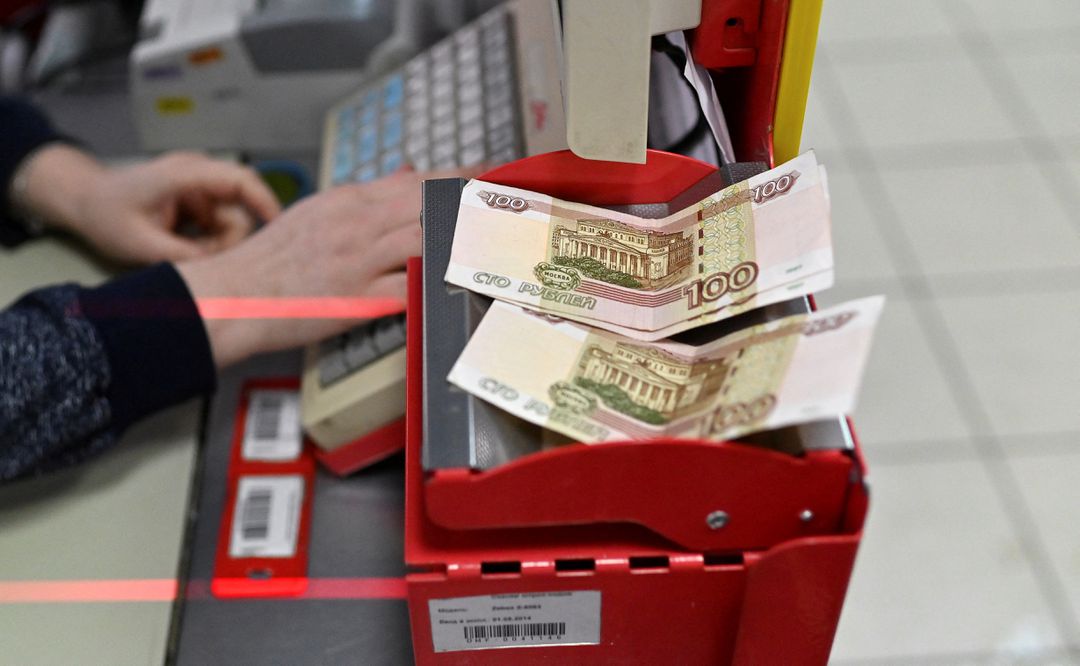
President Vladimir Putin ordered a 10% increase in pensions and the minimum wage on Wednesday to help Russians cope with inflation, but he claimed the country’s economic woes were linked to the conflict in Ukraine.
Last month, with annual inflation near 18 percent, the Kremlin leader admitted that the Russian economy would have a ‘tough’ year in 2022.
‘When I say ‘tough,’ I don’t mean all of these problems are related to the special military operation,’ Putin said during a televised State Council meeting in Moscow.
‘ As inflation is equivalent and, if you look at the structure of their economies, much higher than ours in nations that don’t undertake any activities – say, overseas, in North America, in Europe.’
His remarks overlooked the fact that growing inflation in Western economies is partly a result of Russia’s war in Ukraine, which has pushed up oil and food prices around the world.
The pension rise takes effect on June 1st, while the minimum wage increase takes effect on July 1st. The initiatives, according to analysts, will not avoid a severe drop in real incomes.
Putin pledged in March to reduce poverty and inequality this year despite crippling Western sanctions and high inflation, according to the independent Levada Centre’s April poll. Putin’s approval rating has risen more than 10 points since the start of the Ukraine campaign to 82 percent.
The Russian economy has been devastated by an unprecedented onslaught of Western sanctions imposed in response to his decision to send soldiers into Ukraine on February 24, with consumer prices skyrocketing and international corporations abandoning Russia in droves as trade becomes nearly impossible.
After inflation is taken into account, the increase in social payments will reduce but not prevent a drop in Russians’ actual incomes, wages, and pensions, according to the VEB Research and Expert Review Institute.
Even with a 10% increase in the minimum wage and retirement pensions, VEB predicts that Russians’ real disposable incomes would fall by 7.5 percent this year, and real wages will fall by roughly 6%. Poverty is expected to climb to 12.6 percent this year, up from 11 percent in 2021, according to VEB.
The monthly minimum wage in Russia is presently 13,890 roubles ($250), whereas the average retirement pension is 18,521 roubles.
The rise in wages and pensions could exacerbate inflationary pressures that the central bank sought to alleviate with an emergency rate hike to 20% in late February, when the rouble’s foreign exchange value plummeted. As the rouble has rebounded, it has decreased its rate thrice since then.
The restrictions would cost the federal budget roughly 600 billion roubles ($10.5 billion) this year and around 1 trillion roubles in 2023, according to Finance Minister Anton Siluanov.
The central bank is scheduled to hold an out-of-schedule policy meeting on Thursday, during which analysts expect it to lower the benchmark interest rate from 14 percent to 9.5 percent, as it was before the involvement in Ukraine.

Post Your Comments